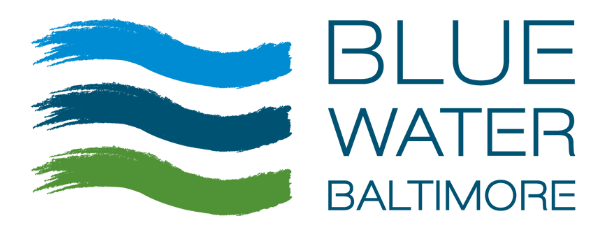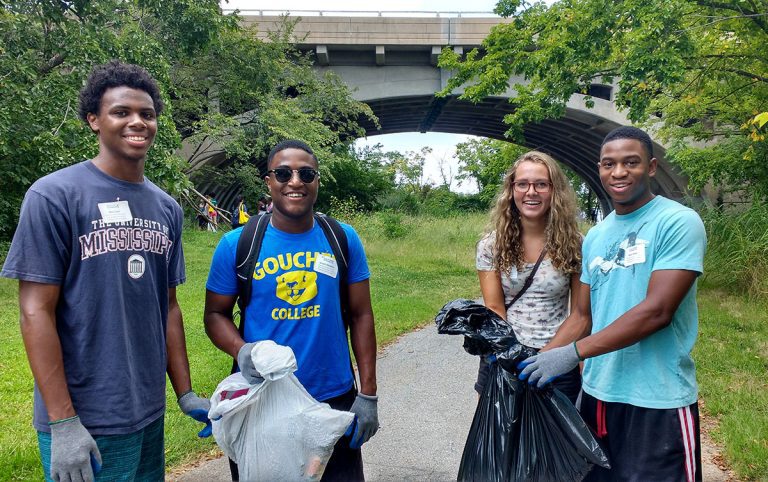Happy 40th Anniversary, Clean Water Act
[Note: Lisa DeGuire is the 2012-2013 Chesapeake Conservation Corps member for Blue Water Baltimore. She assists with greening projects, environmental education, and the Clean Water Community Initiative.]
Today, the Clean Water Act turns 40!
 Although I wasn’t yet born when the Clean Water Act was enacted, I have been reaping the benefits my entire life. The Clean Water Act, passed in 1972, made it possible to hold industrial polluters legally accountable for direct contamination of US waterways. The Clean Water Act has been described by Bill Holman, Director of State Policy at Duke University’s Nicholas Institute for Environmental Policy Solutions as “one of the most successful environmental laws ever enacted.” Now, with the help of local Waterkeepers and the Environmental Protection Agency, it has been protecting our waterways for 40 years! I’d say that’s cause for celebration.
Although I wasn’t yet born when the Clean Water Act was enacted, I have been reaping the benefits my entire life. The Clean Water Act, passed in 1972, made it possible to hold industrial polluters legally accountable for direct contamination of US waterways. The Clean Water Act has been described by Bill Holman, Director of State Policy at Duke University’s Nicholas Institute for Environmental Policy Solutions as “one of the most successful environmental laws ever enacted.” Now, with the help of local Waterkeepers and the Environmental Protection Agency, it has been protecting our waterways for 40 years! I’d say that’s cause for celebration.
Last month, on September 15th, over one hundred paddlers including 30 different Waterkeeper organizations from across the country, gathered in Georgetown Waterfront Park to celebrate clean water. The day began with a group paddle across the Potomac and ended in a waterfront cleanup. Rally speakers addressed their audience on land and in the water, commemorating the immense progress that has already been made and acknowledging that we still have more to do to achieve fishable, drinkable and swimmable waters.
Speakers gently warned that the legacy of the Clean Water Act is not predestined. Currently, some polluters and politicians are exploiting loopholes in the Act and are attempting to weaken or remove key environmental regulations.

It has somehow become a common belief that clean water is too expensive. The truth is that dirty water, and not clean water, is economically detrimental. As one of the speakers at the celebration noted, it is much more difficult and costly to improve polluted water than it is to simply preserve clean water.
Additionally, one weakness of the Clean Water Act as it exists is that it does little to reduce non-point pollution. Non-point pollution, such as storm water runoff, comes from many diffuse sources as opposed to specific industrial pipes or factories.
This is why organizations like Blue Water Baltimore are so important. Here at Blue Water Baltimore, we are working hard to educate Baltimore residents on urban runoff and stormwater pollution. Where the Clean Water Act falls short, we are picking up the slack.
For me, the most poignant message of the rally was the reminder from Potomac Riverkeeper Ed Merrifield that roughly 2/3 of the human body is made up of water. That percentage is even higher in babies, up to 80%. That means that our bodies and our children’s bodies are quite literally composed of our surrounding watersheds. As the living reflections of our watersheds, shouldn’t we want to keep them clean and healthy?
So, do your part. Vote, volunteer and advocate to keep your family, your community and your waterways protected. Together, we can strengthen – not weaken – the Clean Water Act.
Happy Anniversary Clean Water Act! I hope it’s a good one, and wish you many more.

